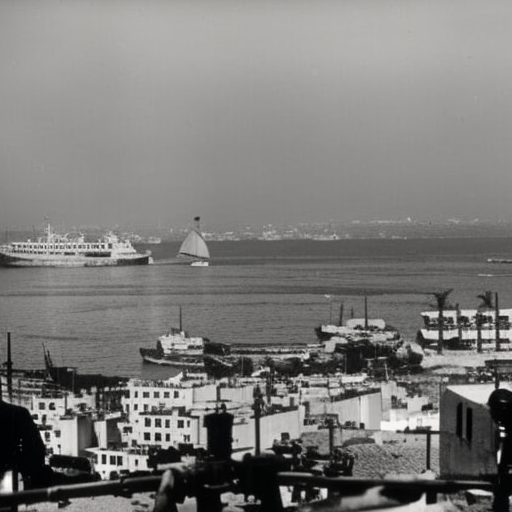Bombardment of Algiers: The End of Barbary Piracy
The Bombardment of Algiers in 1816 was a military operation conducted by the British and Dutch navies against the city of Algiers, the capital of the Barbary state of Algeria. The bombardment was a response to the continued piracy and enslavement of European sailors by the Barbary pirates, who operated from the North African coast.
Background:
For centuries, the Barbary pirates had terrorized European ships in the Mediterranean, capturing sailors and holding them for ransom or selling them into slavery. The pirates were based in the Barbary states of Algiers, Tunis, and Tripoli, which were nominally under Ottoman control but operated independently. European powers had long tolerated the piracy, paying tribute to the Barbary states to ensure the safety of their ships.
The Rise of the Barbary Pirates:
The Barbary pirates had become a significant threat to European trade and security by the 18th century. They targeted merchant vessels from European nations, including Britain, France, Spain, and the Netherlands. The pirates would capture ships and their crews, demanding ransom payments for their release. If the ransom was not paid, the sailors would be sold into slavery.
The British Response:
In the early 19th century, the British decided to take action against the Barbary pirates. They saw the piracy as a threat to their growing empire and a hindrance to international trade. In 1815, the British launched a successful campaign against the Barbary state of Algiers, which resulted in the release of British prisoners and the destruction of pirate ships.
The Bombardment of Algiers:
Despite the initial success of the British campaign, piracy continued to be a problem. In 1816, the British and Dutch navies launched a joint operation to bombard Algiers and put an end to the piracy once and for all. The fleet, commanded by Admiral Lord Exmouth, consisted of 27 British and Dutch warships.
On August 27, 1816, the fleet arrived off the coast of Algiers and began bombarding the city. The bombardment lasted for several hours and caused significant damage to the city’s fortifications and ships in the harbor. The pirates were caught off guard and were unable to mount a significant defense.
The Aftermath:
The bombardment of Algiers was a decisive victory for the British and Dutch navies. The pirates’ ships were destroyed, and their fortifications were severely damaged. The Barbary states were forced to sign treaties with European powers, agreeing to end piracy and the enslavement of European sailors.
The bombardment of Algiers marked the beginning of the end for Barbary piracy. European powers, led by Britain, continued to take action against the pirates, launching further military campaigns and establishing a naval presence in the Mediterranean. Over time, the pirates were gradually suppressed, and the practice of piracy in the region declined.
Legacy:
The bombardment of Algiers had a lasting impact on the Barbary states and European relations with North Africa. It demonstrated the willingness of European powers to use military force to protect their interests and put an end to piracy. The event also highlighted the decline of the Barbary states and their increasing vulnerability to European imperialism.
In conclusion, the bombardment of Algiers in 1816 was a significant event in the fight against Barbary piracy. The joint British and Dutch operation successfully destroyed the pirates’ ships and fortifications, forcing the Barbary states to sign treaties ending piracy. The event marked a turning point in European relations with North Africa and contributed to the decline of the Barbary pirates.












